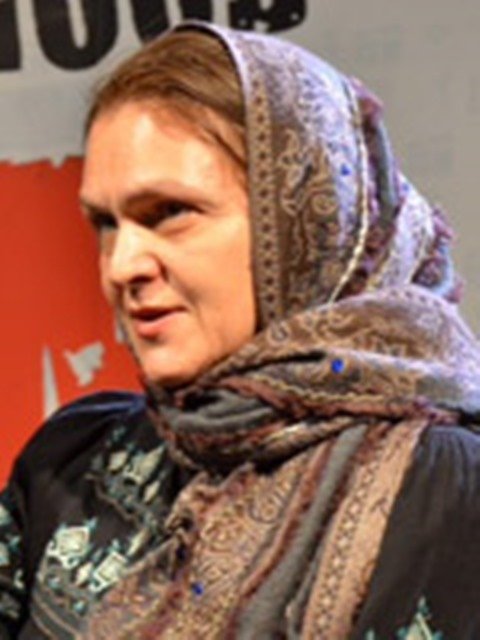Why a religious war in Syria is impossible
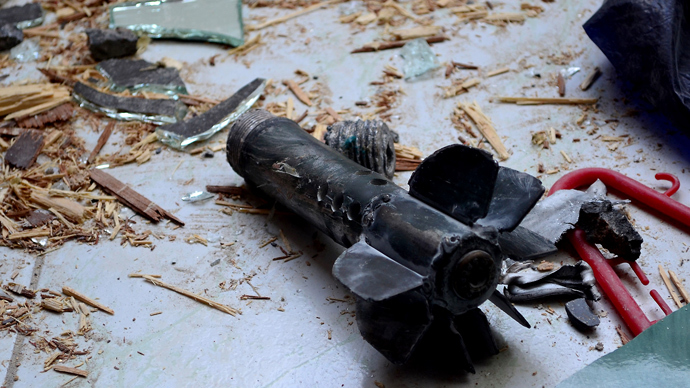
International mass media paint the situation in Syria as a never-ending Sunni-Shia feud and hatred towards President Assad. But somehow they keep silent on how thousands of Sunnis have found friends in the Shia-dominated Lebanese regions.
Instead, they say Sunni support for Syrian government is a result
of Assad propaganda.
The Sunni refugees from Syria prove the international media wrong. Their experience shows that the Shia treat Sunnis as friends, while foreign militants stoke religious hatred and bring along nothing but devastation.
None of the refugees I talked to was a civil servant. All these people’s homes and lives were destroyed by the war.
Some had initially sympathized with the revolution, but as things went on, they changed their minds. Propaganda tells them to despise the Syrian government and the Shia, and to welcome the rebels, their liberators. But these people see the Syrian army as liberators and they are thankful to the Shia.
“Of course our relations with the Shia are good – how else can it be given that we have fled to join them?”
Nine months ago Khadijah Zahra, 35, fled from Bustan al-Qasr, an
Aleppo suburb, with four kids. Her husband was waiting for her in
Lebanon, in the north of Bekaa village, a Shia territory.
“There were seven of us, Mum and Dad included, and the fifth child was born on the way,” she says.
They had a home of their own in Aleppo. Her husband is a freelance welder. The whole family is Sunni.
She calls the rebel takeover of Aleppo a siege rather than liberation, one that made her flee with her kids to her relatives in Achrafieh – a Shia region.
“We saw fighting break out not far from here around the Masjid al-Nuqtah mosque. Staying there any longer would be suicide,” she says.
“They entered our neighborhood on the first day of Ramadan, at five in the morning, and told everyone to stay at home. That looked like wartime precautions. Later that day came the army. They have been maintaining control of that area up until now. The rebels have now completely taken over it,” says Khadijah.
She believes there are lots of Chechens among the rebels.
“Chechens are tall, thin, dark-skinned, with black eyes, black hair and beards. Their clothes are different from ours. They walk around in bullet-proof vests, sometimes in Arabic shirts or short-sleeved ones.”
Doesn’t sound like Chechens though.
“That might well be Afghans or Pakistanis. We never talked to them. They don’t really speak much Arabic anyway,” agrees Khadijah. Unlike the Turks, the Lebanese have little awe or admiration for the Syrian insurgents.
“They didn’t touch us. But we looked away and didn’t talk much to them,” she says.

“My home is safe, but it is surrounded by ruins now. I’ve told my neighbor to live in my home. My sister has stayed there, too: we call each other once every two months,” says Khadijah.
“They’ve robbed all the shops and pharmacies. Whenever they found an empty house, they would occupy it till the owners come back,” says her sister-in-law Samar Sabah, 28, who used to live in Al-Ferdous, Aleppo. Her husband is a carpenter. She has three kids. They left Aleppo four months ago, when the war was on their doorstep.
“It’s all simple for them. If they ask you to do something and you fail – they will kill you. For instance, a rebel says your shop belongs to him and you won’t give it to him. In this case, you will get killed.”
“Fortunately, we have always lived and still live in peace
with the Shia. Our neighbors in Aleppo were Shia and when we had
fled to Achrafieh we joined the Shia, too,” Khadijah says.
So I have to explain to them that the entire world believes there is religious war in Syria.
“Religious? No, it is not religious!” the women protest.
“You are asking weird questions. Of course our relations with the Shia are good – how else can it be given that we have fled to join them? We don’t communicate, as you’ve put it, but there is no bad blood between us. It’s just because each family prefers to stay in private. We used to stay at home, didn’t even visit our neighbors because there was no reason, my husband brought everything we needed. But now he is away trying to earn money, so we have to go and get everything we need by ourselves. We are fine!” Khadijah exclaims.
‘All our relatives dream they could come here’
There is no Sunni mosque in the region of Lebanon where these
families live. But they don’t regard it as discrimination.
“Women in Syria went to mosque only during Ramadan and on
Mondays when we had the Koran-learning classes for females. Yes,
there is no Sunni mosque. So what? We pray at home. In Syria we
pray at home, too,” Khadijah explains.
Her husband used to go to prayers on Fridays when in Syria, but
he doesn’t go now.
“He prays at home, it is OK. It is war.”
She notes that women in Lebanon go to mosque on Thursdays and Fridays.
She can’t figure out why it is an issue at all that her Sunni family fled and joined the Shia in Lebanon.
“We knew how well they live here. My husband’s sister lived here two years ago and she told us about these people, so we wanted to come.”
I tell her that a lot of preachers all over the world have declared the Shia apostates, called for jihad against them and call Hezbollah (Party of God) ‘the Party of Satan’. I ask her if she has heard about it.
There is suddenly silence in the room. The women think I am
mocking at them. Propaganda somewhere on the internet is one
thing, but relationships between real people is another. I insult
their hospitality merely by pronouncing these clichés.
“We are happy to be at the same place with Hezbollah. We have nothing against them. Nobody has ever said a rude word to us. Surely we want to come back, it’s our home there. InshAllah – we will return. But we are grateful to those people who supported us here and we can’t see why there are such talks in the first place.”
I ask them if they are afraid to come back, as they live with the Shia and what if people will reject them because of that.
“The fact we lived with the Shia will never put us in danger. I tell everything to my brother. I tell him about our life here and all our relatives now dream they could come here. There have never been any religious disagreements is Syria. Never!”

‘Didn’t you know that many Sunnis support Assad?’
“According to Al Arabiya and Aljazeera, the conflict in Syria
is all about religion – it’s they who tell about the Shia
attacking the Sunni. But nothing of this kind is happening where
we live. We didn’t hear anything about it from our brother or
other relatives,” Samar says.
They are upset that Aleppo has been ruined almost completely now.
According to propaganda, Assad is to blame for ruining the
country.
“I think he is a good man. We wish to be completely free from
foreign presence. Didn’t you know that many Sunnis support Assad?
Our relatives can’t wait for all of this to end. Foreigners live
in our homes and you expect us to criticize someone who wants to
help us come back home?” Khadijah says.
“Why are you all asking whether we are the Sunni or the Shia? We don’t live or think like that. We’ve always lived quietly trying to avoid these kinds of problems,” the women say, confused.
They are outraged that the external world is stirring up a conflict between the Sunni and the Shia.
“Look, that man is a Shia, and we live next to each other just
fine,” says Khadijah about their neighbor who’s been helping
them.
Unlike the herd of experts across the world, they don’t believe there was something evil in their lifestyle that could have led to today’s tragedy.
“This is a game that the large countries are playing,”
says Samar.
These people are convinced that it wasn’t Assad who destroyed their country and ruined their lives, but this ‘game’ did.
Refugee children forced to work starting from the age of 10
Accompanied by media, Angelina Jolie has been restlessly visiting Syrian refugee camps with calls “to overthrow the murderer of children.” However, the UN and the Arab states are not helping the refugees. They don’t share their homes, schools or food with them. But the Shia do.
Schools are overcrowded and students have to study in two shifts. Khadijah and Samar were able to enlist their younger children to school as late as this year. The older kids had to give up school and to start earning their living when they were 14, 12 and 10.
“They lost a year-and-a-half of studies in Syria, and were unable to catch up here,” Khadijah says, frustrated.
Women notice that all young people, including girls, get a higher
education in Lebanon, particularly in the Shia areas.
“In Syria, it depends on your family and your situation,” explains Khadijah.
At the same time, she tries to say good things about Syria whenever she can. This is a feature of Syrian culture.
“Syria has introduced a nine-grade compulsory secondary education. All kids go to the same school till sixth grade, but girls always study a separate classroom.”
Now their children are embarrassed because they missed a year of studies. They are uncomfortable being in a class with younger students.
“We do speak with a slight accent, but then again each Lebanese village has its own accent,” she comments, laughing.
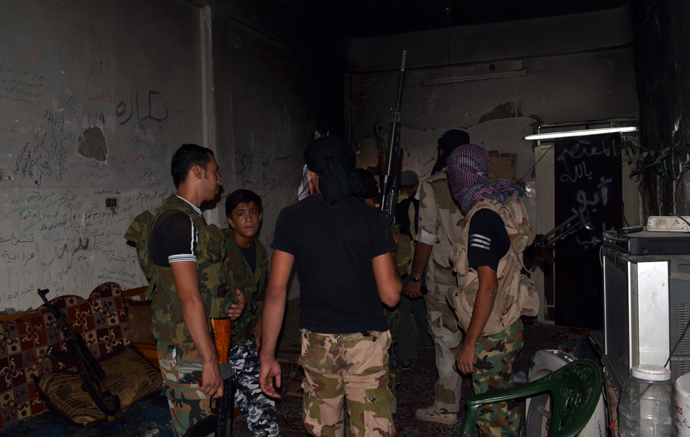
Brainwashed to become martyrs in Syria
Ghufran, 20, is a Sunni. She is a refugee from Aleppo. In Lebanon she married a Sunni who was a refugee just like her. Ghufran lives with her parents-in-law in the suburb of Nabatieh, the chief center of Hezbollah – the Shia resistance movement in the south of Lebanon.
“This is where we met, got engaged and married four months later. InshAllah, we will soon return to Syria, and this whole thing will seem like a nightmare,” says Ghufran, who is pregnant.
She is outraged that the world is trying to divide the Sunni and
the Shia.
“Islam says nothing about it. We live like brothers and sisters, not like enemies. There is no war between us,” Ghufran explains.
I asked her whether they blamed Russia for all Syria’s troubles, as insurgents try to portray it.
Ghufran was stunned.
‘We really like Russia. There are lots of Russian women living in Syria. A relative of mine is married to a Russian woman who wears a head scarf and says prayers because she loves and respects him. We’ve met a lot of Russians and we brought goods from Russia. Syrians love Russia,” she said.
The attitude towards foreign mercenaries, however, is a negative
one.
“We often saw Al-Nusra Front fighters, they behave in an obnoxious and arrogant way,” Ghufran says.
“They kill people, cut their hearts out – no Syrian, even in
opposition to the Assad regime - could have ever done such a
thing. Thankfully, we, Sunni and Shia, live in peace. It’s the
same with Christians – we were hiding from the rebels in
Sulaymaniyah, where only Christians live. There’s no division
between us based on religion. It’s the invaders that are trying
to drive a wedge between different confessions,” Ghufran
says.
She recalls a news report showing foreign mercenaries who said
that they came to Syria to become martyrs and go to heaven.
“They were brainwashed into believing that in Syria they would
earn their spot in heaven. The foreigners control the opposition,
they determine the ideology,” Ghufran says.
When I bring up the numerous pictures of foreign fighters
surrounded by children, Ghufran says that they were giving out
candy.
“They talked to teenagers aged 12-15, taught them to smoke and
tried to persuade them to take part in demonstrations. They gave
them alcohol, and that’s in Ramadan, when people are fasting.
Drinking alcohol in Ramadan!” she exclaims.
Ghufran believes that most Syrians changed their outlook in the
course of the last two years.
“When the revolution began, they saw it in one light. And then the foreigners came, and the people appealed to the regime for protection.”
She is convinced that the foreign fighters’ behavior led to
disillusionment among the Syrian people.
“Members of Al-Nusra Front and the Free Syrian Army took young girls for wives against their will. They would just put their hands on the girls’ heads three times, say ‘Allahu Akbar’ and take them away. They’re mercenaries, not Muslims. They threatened to kill the kids if they are sent to school, and the school buildings they turned into their bases,” Ghufran says.
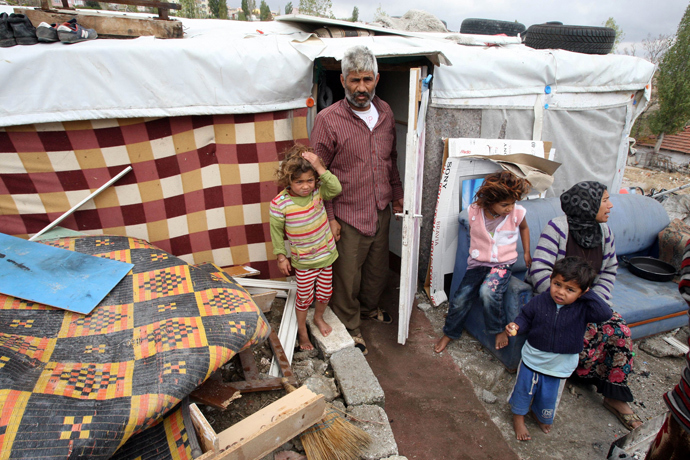
“Two 13-year-old girls wanted to go to school, but the Free
Syrian Army took them and put them through unspeakable horror and
disgrace. They took away men and women against their will.
Unfortunately, their tactics worked and resulted in estrangement
and clashes,” Ghufran explains.
“There were military officers and their families living in our neighborhood, so the Free Syrian Army kidnapped their children to make them switch sides. They kidnapped the daughter of one of our neighbors and told him that unless he joined them, they would give him back her body. This man had to announce on TV that he’s switching sides, but we know what really happened,” Ghufran says.
“They bring chaos and destruction wherever they go. My cousin
was in the army, then he became a businessman. His kidnappers
demanded ransom, so the family paid it and freed him. It’s been
seven months since my father’s brother disappeared. We have no
news of him. He was going to Latakia, but never got there. That’s
what the rebels are doing,” Ghufran says.
‘The UN won’t consider us refugees, but Hezbollah helps us’
Amal is 50. Her family was living in the Yarmouk refugee camp for
Palestinians, even though they are Syrians. She and her husband,
who worked as a taxi driver, her two children and her daughter
with her children all left Yarmouk.
Amal’s ancestors were from Hermel, so she has a lot of relatives
in Lebanon, but she was born in Syria.
Her son-in-law works as a cook. He returned to Syria five months
ago to make a living. Now he cooks shawarma at his brother’s food
shop, making some $2-3 a day – not enough to sustain a family.
The family’s house in Hermel got hit by a stray missile.
“That day, a TV channel ran my husband’s image – he was crying
upon the rubble,” says Amal. “They’d managed to get to us
even here with their missile.”
Amal’s husband fell badly sick following the missile strike,
suffering a kidney failure, and later a loss of speech. After the
kidney failure, his son took him to a hospital located in Janine,
a Sunni town.
“They told him at the hospital, ‘We will attend to you if you agree to thank Qatar and [Saad] Hariri on camera,’” Amal tells me. “He did it, as best as he could. But later, Hezbollah found out about him and took it upon themselves to pay for his treatment. They didn’t demand to thanked on TV.”
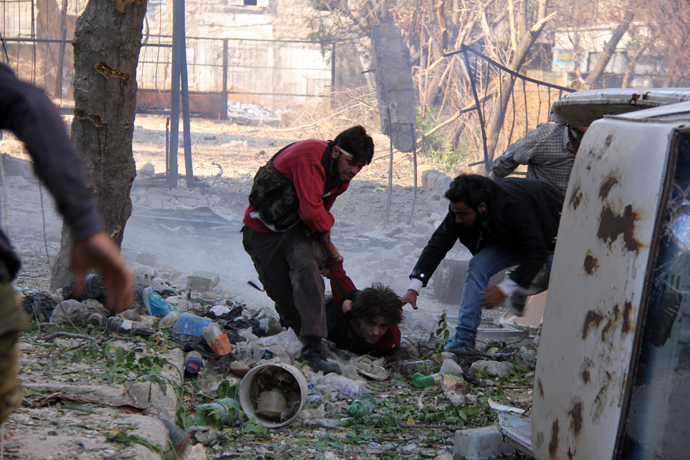
“The UN won’t grant us refugee status, and they refuse to help
us. But Hezbollah has provided us support, and we are very
thankful.”
“I know for certain that our home in Yarmouk has been looted,
and a house next to ours got destroyed. I called our neighbors
about two or three months ago to get the latest news – that’s how
I know.”
Amal recalls the summer of 2012, when Al-Nusra Front fighters
took hold of the Yarmouk camp. They are still there today. Amal’s
neighbor was allowed to enter his own house one last time, and
then they kicked him out.
“They have seized total control of our neighborhood in
Yarmouk, and now they are amassing there,” says Amal.
“The insurgents consider us traitors: we are on their
blacklist. I spent three months watching them prowl our
neighborhood. Our house is located at a street intersection where
the rebels set up a checkpoint. Time after time, I saw them stop
and detain young men from the neighborhood. And later we would
find out those boys had been executed.”
“Because of the insurgents, we were down to eating grass: we
couldn’t leave the house to go to work, or to go shopping. My
boys were afraid to go outside. We considered it a good day if we
managed to sneak out to a shop and make it back.”
Forcing a Rebellion
While in Yarmouk, Amal could watch the rebels run the
neighborhood, simply by looking out the window.
“Al-Nusra Front men don’t speak Arabic. They are all
foreigners from different countries. They wear beards, long
shirts and short pants. My sister’s husband went over to talk to
them once, but they still wouldn’t allow him into his own house.
When he came back, he confirmed that they didn’t speak
Arabic,” she says.
Amal knows by name each one of the locals who assisted al-Nusra in occupying Yarmouk. Contrary to insurgent propaganda, those people were not Palestinians.
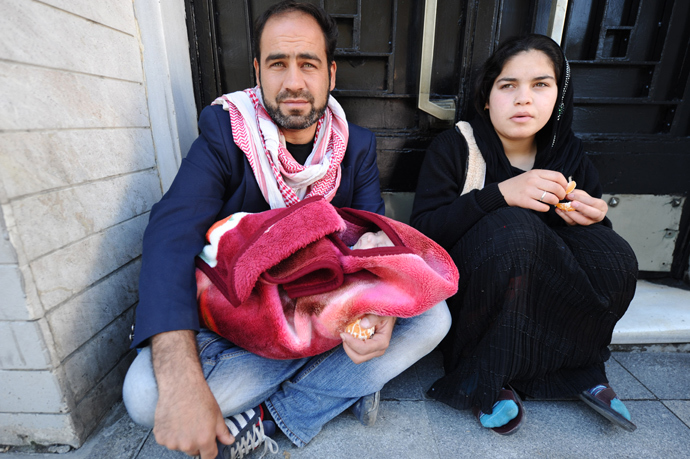
“There was a Syrian family named Lakud, who were originally
from Deraa in the Hauran area. They were the first to defy the
government. They went out on street marches, where they carried
guns and fired shots into the air. They burnt down a police
precinct. There were others marching along, but the Lakuds were
the most aggressive ones. They were the ones who showed Al-Nusra
militants into the camp,” the woman says.
Amal heard the protesters chant, urging Syrians to take up arms
against Iran and its Shia proxies, who allegedly aspire to seize
power in Syria.
“They went looking for my son and wanted to kill him for
refusing to attend their rallies and take weapons from them,”
she tells me. “I barely saved him.”
The insurgents sentenced Amal’s son to death in absentia twice.
“Once, when we were already gone from Yarmouk, rebels came to
our house. They were picking a spot to place their sniper.
Inside, they found a photo of my son in his uniform, taken when
he did military service. He had been a mere private, not even an
officer. The rebels left a knife lying on top of that photo, as a
sign. Our neighbors called on our house some time later and found
it this way, so they told us about it.”
Once Amal’s family fled to Lebanon, they had to wander from one
place to another, sheltered by their various relatives.
“Hezbollah got word of our desperate situation, and their men
came to us once and brought food. They also bought us all the
household essentials, from heaters to mattresses,” says Amal.
“When they say that Hezbollah discriminates against the Sunni,
they lie. The kind of support we have had from Hezbollah, we have
not seen from anyone else.”
Amal says she was shocked by a feature story she watched on Lebanon’s NewTV channel. A Syrian refugee told the media that people from an organization called Lashkar-e-Taiba offered him moneyed assistance in return for his wife and daughter, whom he was supposed to send off to Qatar, where they would “work.”
“Do you understand what they meant to turn those women
into?” she says. “These groups have no shame. They rob
people, they ruin their lives. They are a disgrace to Islam and
to all Muslims.”
The statements, views and opinions expressed in this column are solely those of the author and do not necessarily represent those of RT.
The statements, views and opinions expressed in this column are solely those of the author and do not necessarily represent those of RT.
